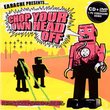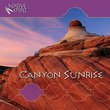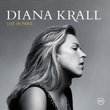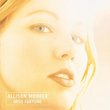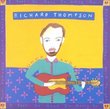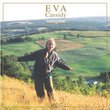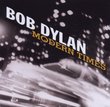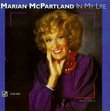| All Artists: Kurt Elling Title: Nightmoves Members Wishing: 0 Total Copies: 1 Label: Concord Records Original Release Date: 1/1/2007 Re-Release Date: 4/3/2007 Genres: Jazz, Special Interest, Pop Styles: Avant Garde & Free Jazz, Modern Postbebop, Vocal Jazz, Bebop, Vocal Pop Number of Discs: 1 SwapaCD Credits: 1 UPC: 888072301382 |
Search - Kurt Elling :: Nightmoves
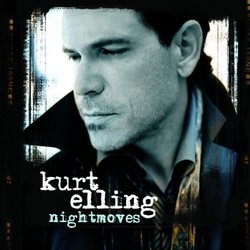 | Kurt Elling Nightmoves Genres: Jazz, Special Interest, Pop
Chicago vocalist Kurt Elling's limber and deep tenor voice is at home in a myriad of idioms, from straight-ahead, Latin, and pop, to poetry, and his wide artistic range is fully reflected in his Concord debut. As in his si... more » ![header=[] body=[This CD is available to be requested as disc only.]](/images/attributes/disc.png?v=cdde0dc6) ![header=[] body=[This CD is available to be requested with the disc and back insert.]](/images/attributes/disc_back.png?v=cdde0dc6) ![header=[] body=[This CD is available to be requested with the disc and front insert.]](/images/attributes/disc_front.png?v=cdde0dc6) ![header=[] body=[This CD is available to be requested with the disc, front and back inserts.]](/images/attributes/disc_front_back.png?v=cdde0dc6) |
Larger Image |
CD DetailsSynopsis
Amazon.com Chicago vocalist Kurt Elling's limber and deep tenor voice is at home in a myriad of idioms, from straight-ahead, Latin, and pop, to poetry, and his wide artistic range is fully reflected in his Concord debut. As in his six previous recordings, his longtime pianist-arranger Laurence Hobgood is at the helm of his trio, with special guests including bassist Christian McBride, Yellowjackets saxophonist Bob Mintzer, and the Escher String Quartet. Building on Jon Hendricks's and Eddie Jefferson's scat-vocalese styles, Elling lyrically caresses and melodically illuminates Michael Franks' title track, jazz diva Betty Carter's angular "Tight," and the rarely-performed Duke Ellington number "I Like the Sunrise." The Guess Who's 1969 rock cut "Undun," surprisingly, comes off, as does the bossa nova "Change Partners/If You Never Come to Me," with its reference to Antonio Carlos Jobim's "Useless Landscape." The question is: what can't he sing? --Eugene Holley, Jr. Similar CDs
Similarly Requested CDs
|
CD ReviewsElling Grows and Excells Jason S. Hoffman | Des Moines, IA | 04/04/2007 (5 out of 5 stars) "I'm not qualified to give an objective review of the new Kurt Elling album "Nightmoves," but then again if you believe in the fallacy of critical objectivism then I could really use your help getting to some of the funds that my father left in escrow when the coup removed him from power in Nigeria. This review is meant for fans. So, as a fan, I was worried about the "personnel experiments" that Kurt warned us of early in the recording process. Let's face it, we've all been fiercely protective of the "band" as we know it from the realities of the last ten years. However, you must admit: if you're going to use a bassist other than Rob Amster in the studio, it had damned well better be Christian MacBride. The difference in playing styles is noticeable. The difference in quality of player is not. Also, don't worry: Bob Mounsey complements Laurence on keyboards. He does not apparently sit in for him on any track, however-the title track, "Undun" and "And We Will Fly" all have very strong non-electronic piano lines. The new producer, John Chicerelli, also seems to work out very well, cementing the tricky new mix brilliantly. Elling offers both growth and familiarity to his fans on this outing. "Tight" is a great romantic up tune, most akin to "I Feel So Smoochie" in it's treatment but with hints of the playfulness in "Endless" and the virtuous swing of "The More I Have You." "Nightmoves" reflects a lot of the feeling that was present in "This Time It's Love," especially with regard to "Effendi" for its attention to melodic intensity and "Where I Belong," for its manipulation of emotional reaction via rhythm. The title track also recalls "Never Say Goodbye" from "Close Your Eyes" in structure and sonic palette. The Hobgood arrangement of "In the Wee Small Hours of the Morning" gives the song the sense of sincerity it has lacked in every version you've ever heard, adding uncertainty and the true pain of a missing lover to the comping harmony. I trashed the Sinatra and Botti/Sting versions from my iTunes after hearing this version because I'll never again hear them as anything but saccharine and false. "Body and Soul" is Kurt Elling doing what he does: taking the best version of a standard and lyrically riffing over the solo after the standard head. This vocalese takes his previous masterworks "Tanya Jean" and "Resolution" to task, but rather surprisingly, the solo he covers this time is the version offered by Kenny G from "Classics In the Key of G" instead of the more obvious Dexter Gordon "Homecoming-Live at the Village Vanguard" version. (Just kidding-please don't put a hit out on me.) "Change Partners" and "And We Will Fly" are two songs Kurt has done live at nearly every show I've attended over the last year and a half, so it may come as a surprise when I say that each of these qualify as one of those rare occasions where the studio version polish actually makes the song an even better experience than the intimacy of a live performance is likely to provide. Notably, Kurt has used two different harmonica virtuosos on this album. Howard Levy's performance gives "Partners" kind of Stevie Wonderfulness while Grégoire Maret soaks "Fly" with a dreamy literalness of the sensation of flight. For me, either of these songs alone is would justify the rest of the album if it sucked. But of course, the rest of the album far from sucks. Similarly, "The Waking" is a simple, perfect duet between Kurt and his regular genius/comedian/ladies' man bassist Rob Amster that could "make" an album for a lesser artist if that other artist had nothing else of value to record. Contrast this with "Those Clouds are Heavy, You Dig?" from 12 years ago and the growth, expertise and intimacy between the two men as artists draws you in with the comfort of excellence. The new version of "The Sleepers" follows up "The Waking" (leave it to Elling's midwestern work ethic to get it backwards, putting waking before sleeping.) I assume this was Hobgood's arrangement for the Escher quartet, as it has a great deal more presence and respect for the song than was there on the Hersch recording, along with a confidence of melody and functional harmony that I usually associate with Laurence's work. "Undun" was the one song that I correctly predicted would end up on the album about a year ago. Elling has established a brilliant tradition of taking songs more familiar to the popular, jazz-deficient mindset and "explaining" the medium of jazz through these pieces to an audience which might not otherwise have the chance to ever "get it." There's plenty of traditional rhythm section and sax comping here for jazz lovers, but also a heaping tablespoon of funk in the swing. This is the song that you can play for the friend who agrees to join you at the concert but says "I won't know any of those songs" (a direct Elling quote from the "Man in the Air" CD release concert, though it was in reference to that album's "Never My Love.") "Where Are You" and "I Like the Sunrise" are straight-up torch ballads that approximate the performances at the Mill with the addition of a reverb treatment more akin to a larger hall than Jemillo's definitive club. To sum up my experience of the album, I'd have to say that the biggest revelation maybe shouldn't have been a surprise: that Blue Note was in some ways holding Kurt back creatively. There's an energy, an exuberance and a brilliance here that have never come through in the ones and zeros commitments of the Elling/Hobgood partnership before. Nightmoves is a welcome belligerence of the creative spirit. The music is removing its belt, unbuttoning its slacks and sitting down at the piano bench while groaning something to the effect of finally being free of important and friendly but not entirely welcome dinner guests. And now, the music is getting to work." Kurt, the Singer Rick Cornell | Reno, Nv USA | 04/14/2007 (5 out of 5 stars) "When Kurt Elling first burst on to the scene in the mid 1990's on Blue Note, he was astounding. He was a beat poet who could sing. His vocalese on tunes such as "Tanya Jean" and "Gingerbread Boy" was breath-taking. His patron saints seemed to be Jack Kerouac and Mark Murphy. 12 years or so later, on this, his debut on Concord, he has evolved. He has become a singer. His patron saints now appear to be Frank Sinatra (and Mark Murphy--but the Murphy of 2005's "One to Every Heart") Back then, his "wildman persona" translated into a singer who frequently sang out of control. When he was in the upper part of his register, he would screech. If he had been a sax man, I'd say he sounded like Pharoah Sanders. Now, he sounds more like Zoot Sims or Stan Getz. Check out "The Sleepers", for example. Here, when he goes into his head voice, he sings sweetly and with a full falsetto. He sounds great. Or check out how he covers "In the Wee Small Hours" (speaking of Sinatra). Kurt Elling has a very nice, resonant bass range, which he didn't used to use much. Here, he does the first chorus of this great old song in his low range, and he sounds great. None of that is to suggest that he's lost his beat poet vocalese touch, or has become a lounge singer. Check out the new lyrics on "A New Body and Soul"; or check out his King Pleasurish-changes on "Where Are You, My Love" (there's Sinatra again). Or check out his scatting on Betty Carter's "Tight." Any one of these three would have fit on his first two albums. But with the passage of 12 years, he sings these with more restraint, and more musicality, than he would have back then. I didn't detect any straining at all, and he has increased his range considerably, without losing his unique improvisational abilities in the least. Kurt Elling has been considered to be the best male jazz singer on the scene for quite some time. For the first time, I'm really inclined to agree. This c.d. is a gem. Through the first four months of 2007, we've had 3 vocal jazz gems released: Tierney Sutton's "On the Other Side"; Kendra Shank's "Spirit Free"; and this one. 2007 is shaping up to be quite a year...RC " Great enough for a new Elling Fan; an above average addition J. Brazil | Los Angeles, CA | 04/11/2007 (4 out of 5 stars) "Although a long time fan of Elling's work, I am a bit disappointed on the flow of Nightmoves. Before I go any further, I will state the the album is great, damn near fantastic for someone new to Kurt's work. He gives a sweet, smooth Jarreau/McFarrin feel that is familiar and soothing. I would be a fool not to recommend this album at all, especially for the title track, Change Partners..., and The Sleepers; they are worth the price alone.
Still, for a 'hardcore, die hard, travelling to the Green Mill to get a slice of Kurt and Co.'s energy' fan...or, hell, if you like Moonlight Serenade, Man in the Air, and his older stuff that demanded your attention with scarcastic, seductive vocalese...you will find this album lacking that. I never thought Elling would leave Blue Note nor would I hear harmonicas within his score; not exactly chocolate in my peanut butter, but it works for what it is. Change is good, but Nightmoves lacks enough change to show Elling going on a different musical path. Yeah, he cut his hair and mellowed his sound, but he's still Kurt and you'll still love it. Buy a copy and give your musical library some Elling flavor. " |

 Track Listings (11) - Disc #1
Track Listings (11) - Disc #1